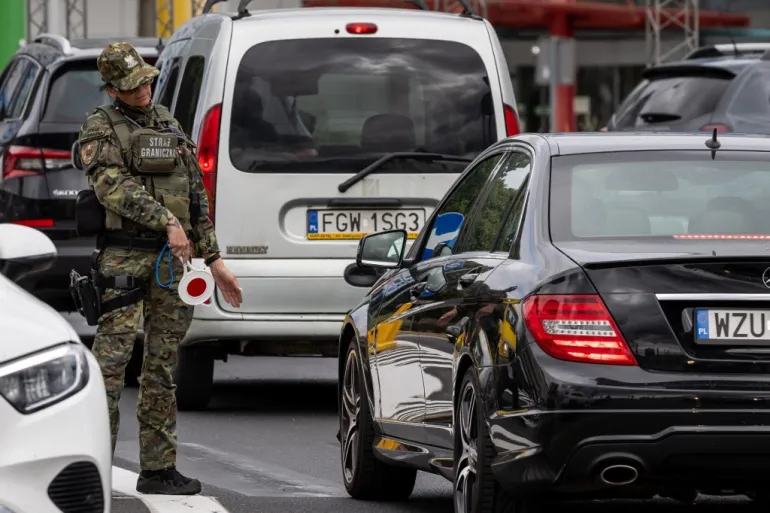Poland has introduced new temporary border controls with Germany and Lithuania as the government tries to manage rising fears over irregular migration and security threats. Prime Minister Donald Tusk announced the decision, saying the checks are necessary to control undocumented migrants and prevent illegal crossings that avoid Poland’s barrier with Belarus.
The Polish government believes that many migrants are changing their routes by entering through Latvia and Lithuania instead of Belarus. According to Tusk, these migration paths are meant to bypass the strong border fences built to stop illegal entry. Now, Poland wants to stop this movement early by placing checks at other border points.
The move reflects broader tensions across Europe, where countries in the Schengen Area are struggling to manage migration flows without hurting freedom of movement. Other nations like Germany, Belgium, and the Netherlands have already introduced similar measures in the past 18 months. The original Schengen agreement allows passport-free travel between member states, but rising migration has pushed many countries to make exceptions.
Germany has been controlling its border with Poland since 2023. Recently, it adopted stricter measures, such as rejecting undocumented migrants and returning them to Poland based on EU rules and bilateral agreements. This has caused friction between the two countries, with Polish officials saying it places an unfair burden on Poland’s border towns and resources.
However, not everyone in Poland agrees with the idea of a growing migrant crisis. Knut Abraham, Germany’s special envoy for Polish relations, warned that the new border checks could cause traffic delays and hurt cross-border trade. Local leaders in Poland, like Rafal Gronicz, the mayor of Zgorzelec (a town near the German border), say the threat has been exaggerated. “There are no pressing waves of migrants walking around Zgorzelec,” he told a local radio station.
Despite the criticism, Polish Interior Minister Tomasz Siemoniak said the checks will only remain in place as long as Germany continues its controls. He insisted that both sides should work together to manage illegal migration without causing damage to freedom of movement or public relations. “We want this movement to be absolutely free,” he said, adding that any solution must be shared between neighboring countries.
The decision to tighten border security comes after two deadly incidents that shocked the nation and fueled anger about immigration. In one case, a Venezuelan man was charged with murdering a young Polish woman in the city of Torun. This incident sparked large protests on Sunday, where about 10,000 people marched to demand stronger action on migration. Just days later, a Polish man was killed during a fight in the town of Nowe, involving ten Colombian nationals. Police have arrested 13 people, including three Poles and ten Colombians, according to state media.
The violence has also encouraged far-right groups to take matters into their own hands. Some of these groups have begun patrolling Poland’s western borders, claiming they are protecting the country from illegal migration. However, human rights organizations have strongly condemned these actions, warning that they are increasing fear and hate toward foreigners. The Helsinki Foundation for Human Rights stated that such “self-proclaimed patrols” are dangerous and are fueled by radical political speech.
Activists and legal experts say that public discussions on migration must be based on real information, not panic or misinformation. They urge leaders to address the root causes of migration and support policies that balance national security with human rights. The current tension highlights the growing divide in Europe over how to handle migration, with countries like Poland now facing both public pressure and international scrutiny.

